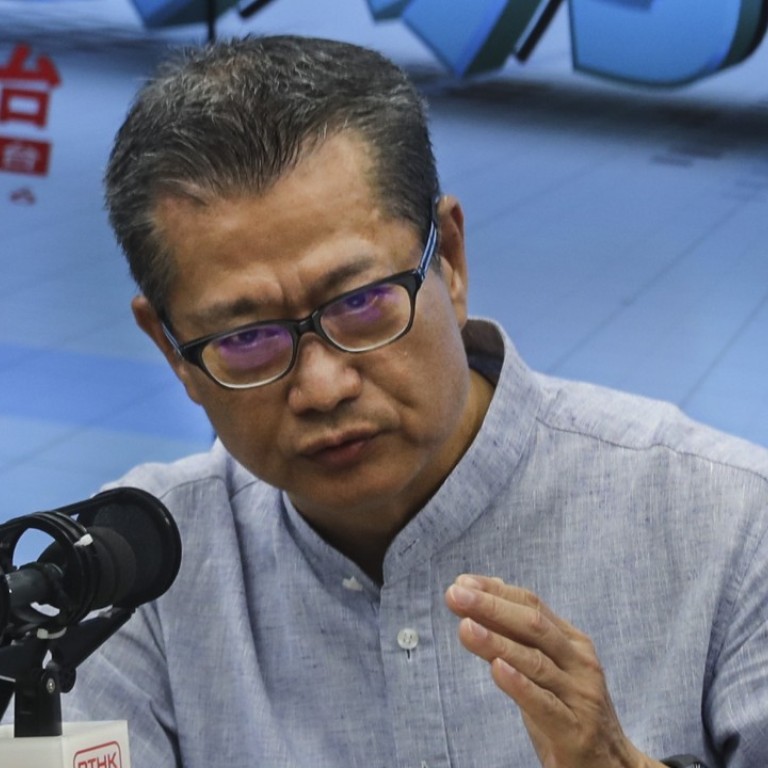
Let’s debate the wise use of public money
Carrie Lam and Joseph Yam believe deficit spending in some years would not contravene the Basic Law, and they appear to be right
The principle enshrined in the Basic Law of living within our means has served Hong Kong well. The city’s finances are the envy of the world. The public coffers are overflowing with cash hoarded against a “rainy day”. The question is whether a less fiscally rigid regime, and more spending on prudent objectives, would have served the community better. A former overseer of the city’s financial system thinks so, and Chief Executive Carrie Lam Cheng Yuet-ngor agrees.
Joseph Yam Chi-kwong, head of the Hong Kong Monetary Authority until 2009, has described the fiscal philosophy of recent years as “miserly”, a reference to the big surpluses that prevailed under former financial secretary John Tsang Chun-wah. He has urged the government to allow deficits to boost the economy, saying it was never intended to have balanced budgets year after year. Lam welcomed Yam’s idea as constructive, saying more public discussion about this would help her carry out her new fiscal philosophy to wisely use accumulated surpluses for community benefit. She has specified spending more generously on the elderly, and investing for the future.
Financial Secretary Paul Chan Mo-po has forecast fiscal reserves will hit HK$952 billion by March next year. Counting other public savings from statutory bodies and Exchange Fund earnings, net fiscal reserves are more than adequate for a rainy day. We think there would be wide public support, given a large income gap, for reviewing the practice of continuing to hoard so much public money.
On face of it, read literally, Article 107 of the Basic Law seems to rule out deficits. In reality it has not always been possible to avoid them. The downturn following the Asian financial crisis and the severe acute respiratory syndrome (Sars) outbreak in 2003 is a case in point. Moreover, the wording is capable of being interpreted flexibly, in that it does not set a time over which a balance must be achieved. Arguably the government can run a deficit in some years while achieving a fiscal balance over an economic cycle.
Assuming relations between Chan and Lam run more smoothly than those between their predecessors Tsang and Leung Chun-ying, we trust this will lead to consensus and innovation in the wise use of public money. That means striking a balance between addressing pressing social issues in an ageing society, and investing in key indicators of the city’s future, such as education of its people to ensure it remains competitive and capable of adapting to a changing work-life environment. Article 107 is one of a number of Basic Law provisions to assure people things would not change too much after the city’s return to Chinese sovereignty in 1997. But it is not meant to be rigid. Lam and Yam have set the stage for a public debate the city needs to have if the fiscal regime is to adapt to the times.

